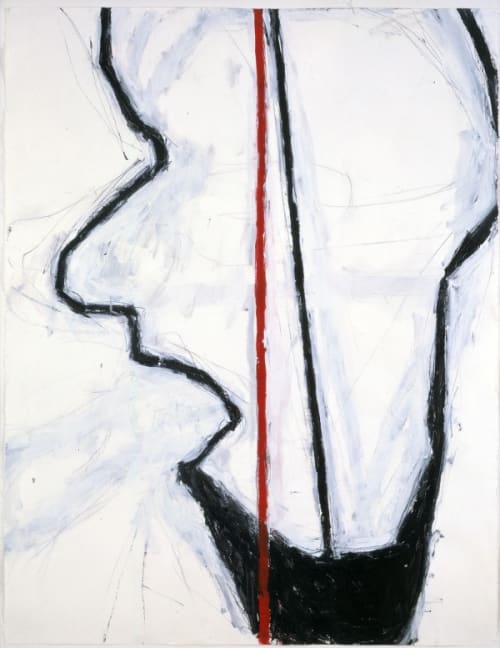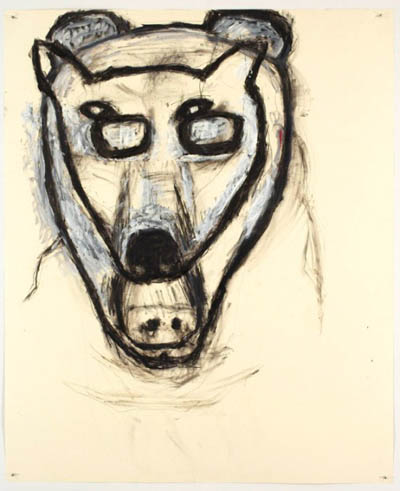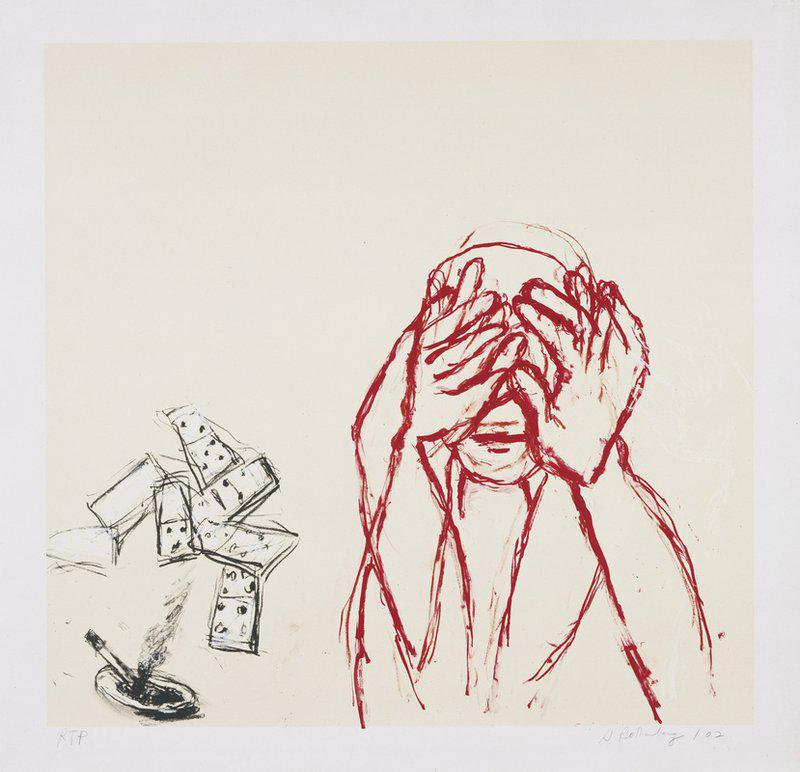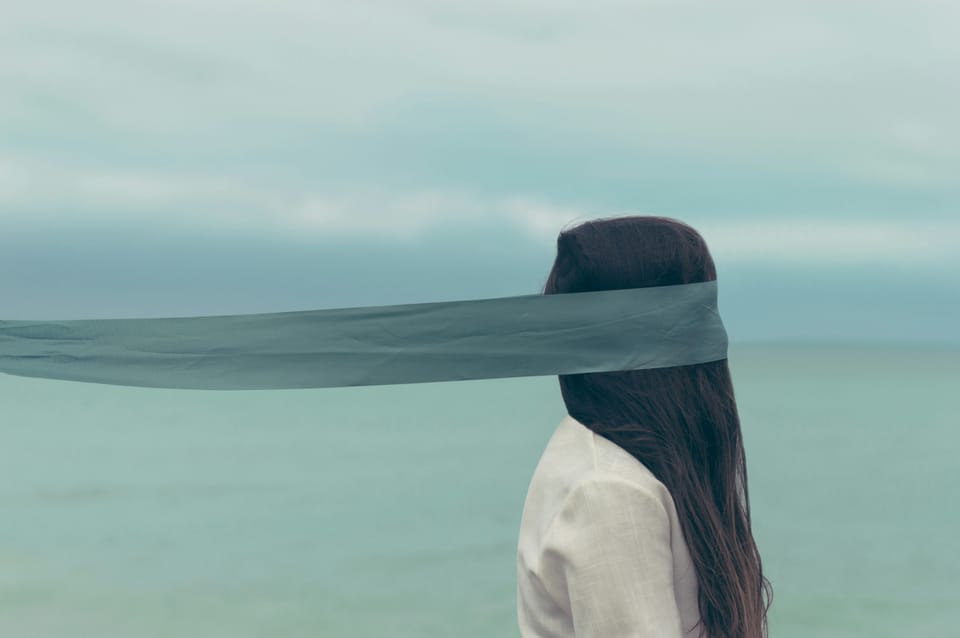What I Need Defending From
Trans children are not dangerous. The dangerous people in my life are the ones I have slept beside.

What do I need defending from? I’m glad you asked. Allow me to pull up alongside you with a lifetime of anecdotes.
But first, let's revisit the executive order “Defending Women from Gender Ideology Extremism,” which instructs our federal government to remove so-called “radical gender ideology” from its communications lest I, a helpless lady, be harmed by language that recognizes my child.
I do not need to be defended from my child's gender. And I definitely do not need to be defended from my child.
It is men—especially men like president Trump—who have warped my sense of self, constricted my body, and threatened my safety.
On Alert
Let’s start in an Arlington, Va., suburb, on a chilly fall day of fifth grade, as I stood at alert in my orange belt on School Safety Patrol. This was the early ’80s, Reagan time. I began as a crossing guard then moved up the next year to Indoor Patrol, a coveted position because you did not have to stand in the cold, yet you still got hot chocolate. I was then promoted to Front Door Patrol: when students lined up to enter the building, it was my job to make sure they behaved. I was drunk with power. It was glorious.
Then one day I found myself demoted to an empty stairwell. Christy Jordan made a point of swishing by and explaining in her taunting voice that our patrol captain, Paul Crunmi, had asked her to “go with” him. She had declined his romantic overture but accepted his offer to make her Front Door Patrol.
One of those lavish blondes at age 12, Christy was a siren. I was a skinny, gangly stringy-haired person. I’d had a hard crush on Paul Crummi despite the fact he was a foot shorter than I. Now he had given me my first taste of being pitted against another girl. I felt my sense of merit warp like a plastic Tupperware container left to melt atop a toaster oven.
The first boy I ever kissed, in a suburban treehouse at the age of 15, said he didn’t remember what happened because he was drunk. I was horrified and ashamed, to say the least. I knew deep down that boy was lying: He remembered. But his reputation would be smeared if it were known he kissed anyone as ugly as I.
Knowable?
When I got some boobs, guys started coming around.
I was 16 and excited to even have a boyfriend. His name was Howard. I adored his acerbic humor, the bite-marks of cancer treatment on the pale chest he’d pumped up through lifting weights. I believed there was, beneath his surly facade, a wondrous, delicate, and knowable person.
In reality Howard was a swaggering smart-ass with a beat-up BMW. Which he would drive past me, not stopping, as I walked down the road in plain sight, making my way to the bus stop. This was while we were “dating.”
Dating entailed Howard bringing me to his basement bedroom after school. We would make out, then he’d tell me to lie on my stomach. There was a little black-and-white TV across the room with no reception; it was always on. I lay there, entirely still, my eyes trained on that fuzzy screen in the otherwise dark, silent cellar. The first time, I didn’t know what would happen next. Howard would progress, after pulling down my pants, to lick my asshole.
But let’s leave my asshole out of this. This is where and when I first began to dissociate from my body.

I can’t say I found what Howard did painful, but it was creepy, and it certainly did not feel like what I expected from intimacy then, and now, which would be a sense of connection.
Howard explained, when reaching out through Facebook decades later, he’d been going through some difficult stuff at the time. #Metoo, Howard.
It was during college, while studying abroad, that a boyfriend first assaulted me. We had a fight, I cried, and this annoyed him, so he took my head in his hands and banged it against a wall. I cried harder, so he slapped my face repeatedly. This boyfriend was a talented painter. Still is.
Nervous
I keep him on the other side of the world. I was at one time in love with him, saw his face across a classroom, his long eyelashes practically brushing the lenses of his wire-rims. The first time he talked to me was at a party in my art professor’s house. I was so nervous I spilled a glass of red wine on the rug.
And I should have been nervous. A year later, as we rode a train to a concert, he talked about how a few years earlier he got a woman pregnant on a one-night stand. She'd met up with him to tell him she was having the baby; he told her he never wanted to see her again and had absolutely no interest in knowing the child. He told me she was ugly. As the train moved across the Scottish countryside, it dawned on me that he might be the cruelest person I had met in my young life.
I have often given my love to the wrong people. Most of whom were cis het white men.
Men were the focus of my early adult life. I wanted them to think I was beautiful, to look into my eyes and be transfixed, to think there was no one else but me who could make them ejaculate. I wanted mastery over their minds and bodies. I used to think I wanted control. Now I realize I wanted to be seen. What does that even mean? It’s simple. I was looking to be respected as a human being. I longed for human recognition in my intimate relationships with men.
Locked
Yet when I lock my doors, I lock them against men.
I've been married three times. Each time, just after that marriage license was signed, sealed, slipped into a stamped envelope and dropped into the mailbox, I've heard the audible slide of a lock into place.
I have been told I am “fat” and “insecure” and “bad in bed” by these supposed life companions who only wished me injury once our marriage had been entered into the books.
I have been swindled, have given over lump sums from my retirement to satisfy the wrath of a man who, despite that I supported him and his two teenage children for several years, got a 50% cut of “our shared assets” after being married to me for those few years. He later insisted he deserved more.

I have been shoved out of my own bed in the middle of the night while I was asleep, my elbows sliced by dresser drawers, tailbone blue and sore from where it landed on the floor. Floors are hard. Land on one, especially hardwood, and you’ll know.
I had slipped beneath the covers to lie beside my sleeping husband. I closed my eyes. But my husband wasn’t asleep. He waited till my breathing eased and I was drifting toward dream to shove me with a force and speed I still can’t fathom.
The morning after, I called him from work to talk about it, and he said he remembered nothing. I was in pain from sitting on a bruise. He didn’t mean it, he said. He was sorry.
I could tell you hundreds more stories, but the fact is women’s stories are so common we’ve got ourselves a sea of them. There is not a single woman you could meet who would deny this.
Drowning
Laws have betrayed us. Laws that are supposed to be on our side.
One morning, years ago, I was en route to work and ended up at the police station instead. I wised up and got a restraining order.
It was the first time I ever said anything out loud about what I had been through; I did not recognize the words as they met the air. My husband shoved me out of bed. It doesn’t sound very violent, does it?
My story is floating around with all the other stories.
Women are drowning in them. Violence against us is ubiquitous. We are OVER IT. We can fry it up and eat it for breakfast.
Ask us what we need defending from.
It’s not a sad-ass assumption that women are in danger because a trans person might enter into a “women's bathroom.” Everyone knows that neither bathroom stall “locks” nor bathroom “stalls” will defend women from the true risks they face.
The most dangerous people can be the ones we sleep beside.
—T.C.


